hokkaido milk
Hokkaido Milk: A Complete Guide for Beginners!
James Lau
Posted on November 28, 2023
Share:
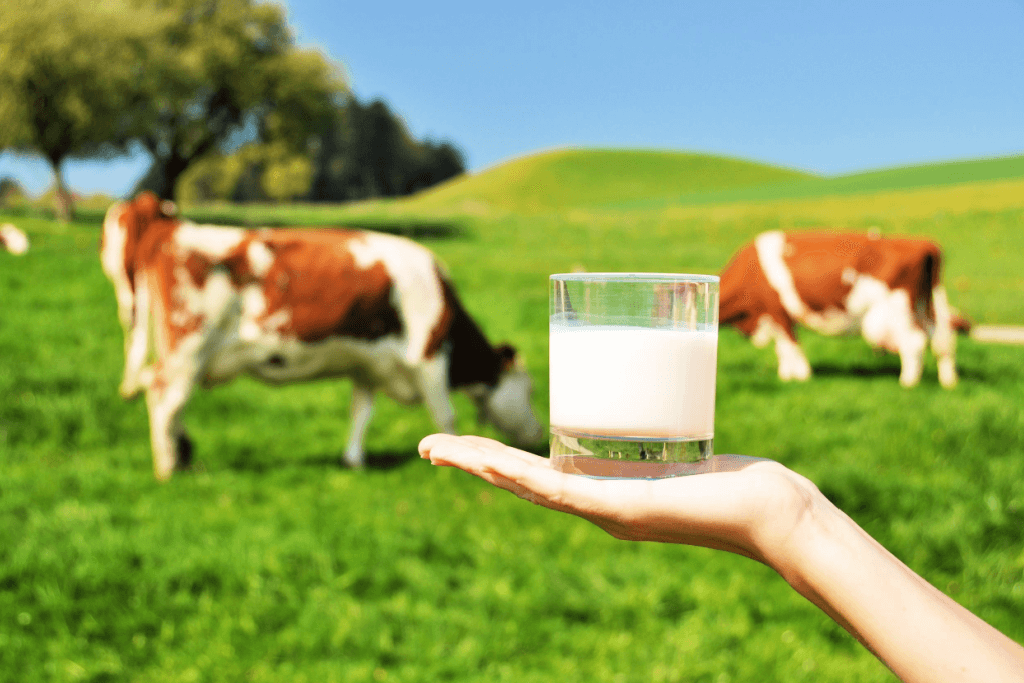
Hokkaido milk is a delight to the senses, a silky drink that goes beyond ordinary dairy. Created in the serene landscapes of Hokkaido, Japan, this dairy proves the hard work in milk production. Let’s uncover the secrets of Hokkaido dairy. We’ll explore what sets it apart, the manufacturing process, and the delicious products that have made Hokkaido dairy famous worldwide.
Why is Hokkaido milk delicious?
Hokkaido is Japan’s biggest prefecture responsible for making more than half of the country’s milk. It’s got cool weather and big open fields with clean air, which is just right for cows to feel relaxed. This cozy setting helps make the milk smooth and creamy. Farmers prioritize the well-being of their cows. Moreover, they arrange daily visits from a veterinarian and provide natural dry feed. In addition, they offer simple comforts like brushes to keep the cows happy.
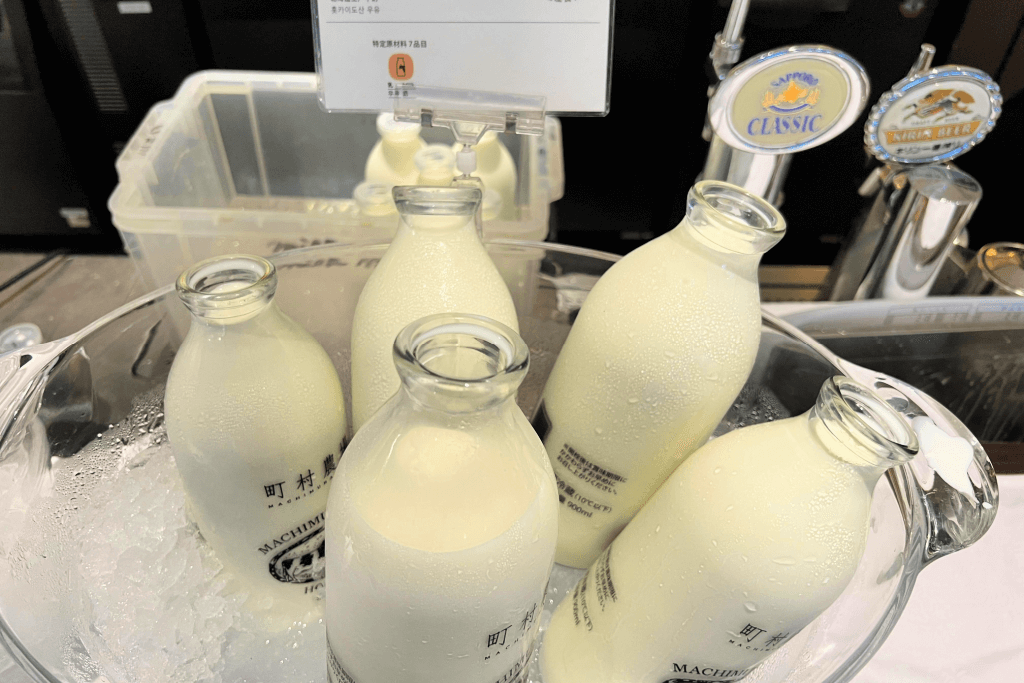
Hokkaido milk has a unique, mild vanilla flavor. The milk’s creaminess instantly coats your tastebuds. Don’t worry about excessive fat; dairy products come in various fat-content options. This ranges from the common 3.6% to the highest 4.6% and the lowest 0.5% milk. Hokkaido milk’s high quality is why it’s one of the best-selling products in Japanese grocery stores! As a result, there’s enough variety to keep everyone happy!
How do they manufacture it?
Hokkaido’s dairy farmers are especially dedicated to producing high-quality milk and dairy products. They’re always trying out new methods and technologies to improve their work. Many are also involved in local communities, advocating for sustainable farming and educating people about supporting local agriculture. Technology, like robotic milking systems and artificial intelligence, has made milk production more efficient and hygienic.
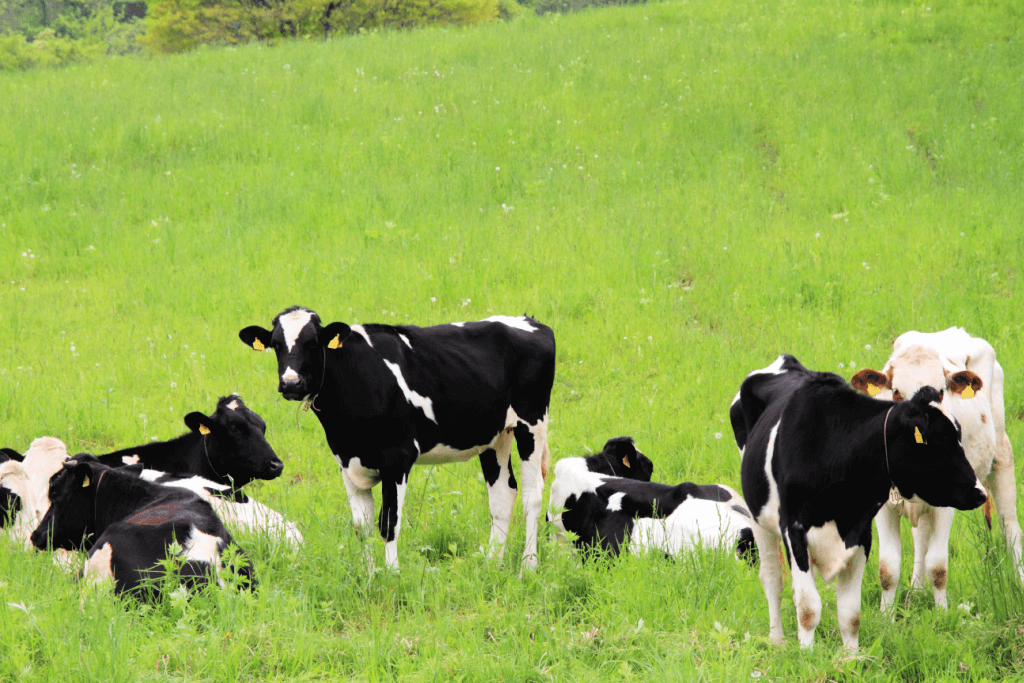
A typical day for a dairy farmer in Japan involves starting early, cleaning barns, and feeding cows mixed grass and grains. They also milk the cows twice daily and collect the raw milk for quality testing. The midday allows farmers time for various tasks, from checking cow health to barn maintenance. Evening care involves cleaning, feeding, and milking once more. Farmers must also be vigilant for cows in labor, as a calf can be born at any time.
Are you looking for some amazing snacks to enjoy this season? Check out Sakuraco! Sakuraco delivers traditional Japanese snacks, teas, and sweets from local Japanese makers directly to your door so you can enjoy the latest treats directly from Japan!
What are the most popular Hokkaido dairy products?
Soft Serve Ice Cream
The northern Japanese prefecture offers a special treat in the form of its unique soft-serve ice cream. Made with luscious Hokkaido milk, this soft serve, locally known as “soft cream,” boasts a distinctly milky flavor that goes beyond the creamy goodness of the milk itself. While the original vanilla flavor is an everyday delight, Hokkaido presents a variety of must-try soft cream flavors.

To be more specific, farms like Santa No Hige in this region cultivate some of Japan’s most delicious melons. If you’re craving a unique flavor, go to Farm Tomita, the country’s largest lavender farm, where you can exclusively savor Lavender Soft Cream. For a taste of Makiba Soft Serve, head to Lake Hill Farm near Lake Toya. Here, dairy farmers also craft soft cream using freshly harvested milk, offering a range of flavors from matcha to cream cheese.
Fermented Butter
In Japan, most butter is ‘sweet cream butter’ and isn’t fermented. However, there’s a unique kind called ‘fermented butter.’ It’s made by introducing lactic acid bacteria to fresh cream or butter. There are two approaches: adding lactic acid bacteria to fresh cream and fermenting or directly kneading lactic acid bacteria into the butter and fermenting it.
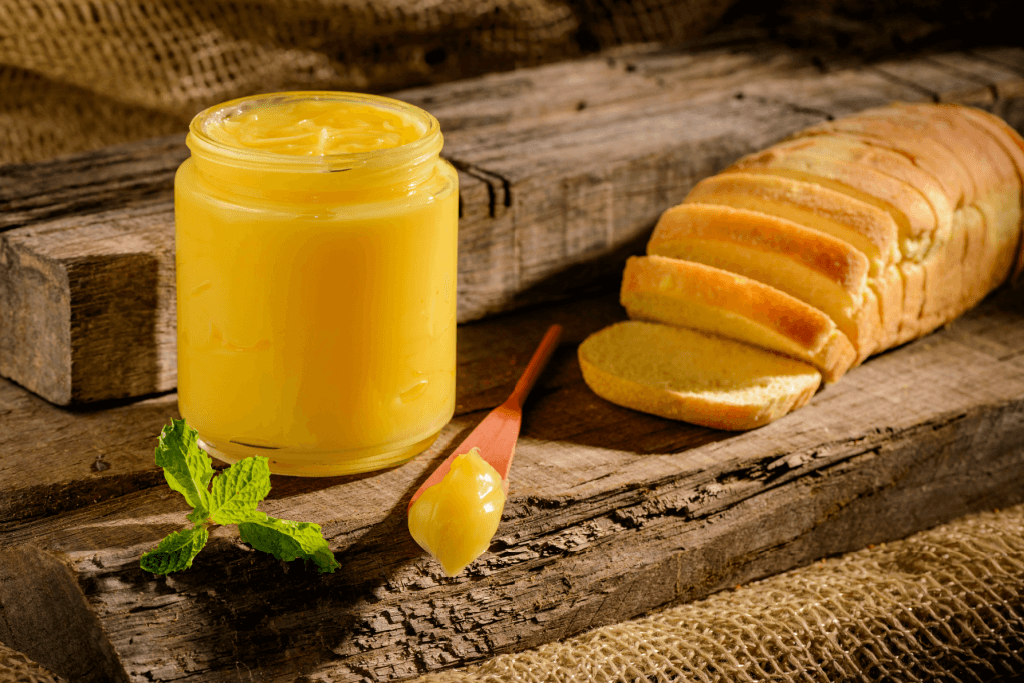
Unlike Japan, in Europe, fermented butter, also called cultured butter, has been popular for a long time and is well-liked by consumers. ‘Yotsuba Fermented Butter’ offers a unique blend of the original sweetness of butter, a refreshing yogurt-like tanginess, and a unique fragrance, providing a delightful twist to this European-inspired style of butter.
Hokkaido Milk Tea
Hokkaido milk tea stands out as a unique beverage, and its uniqueness lies in using high-quality ingredients. The key features include rich, fatty milk and premium black tea. Additionally, the fat in Hokkaido milk contributes to its creamy and smooth texture, creating a perfect harmony with the bold flavors of black tea. Also referred to as royal milk tea or nidashi milk tea, this delightful drink can be sweetened with brown sugar, caramel, or honey.
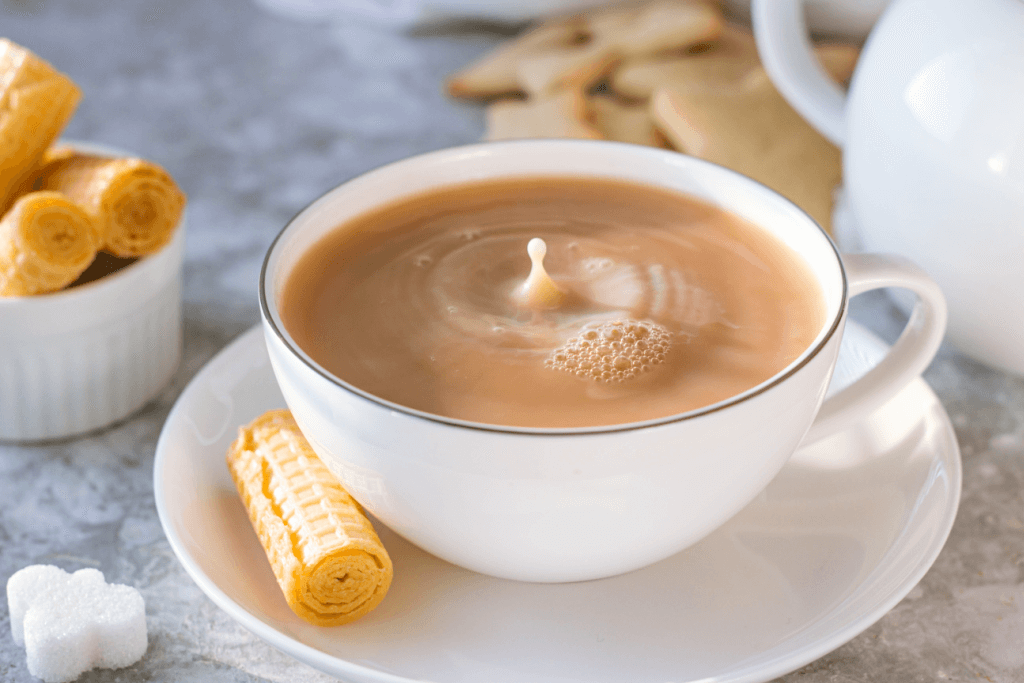
Overall, the allure of Hokkaido Dairy goes beyond its geographical origins. Not to mention, the stress-free environment, cutting-edge manufacturing, and irresistible products make Hokkaido milk a culinary treasure. Whether savoring a cone of soft-serve ice cream or enhancing your recipes with fermented butter, Hokkaido milk promises an experience beyond the ordinary. Have you experienced the magic of Hokkaido milk? What’s your favorite product? Let us know in the comments below!

Discover authentic flavors with Sakuraco
Get Sakuraco 

Discover authentic flavors with Sakuraco
Get Sakuraco 
Related Articles
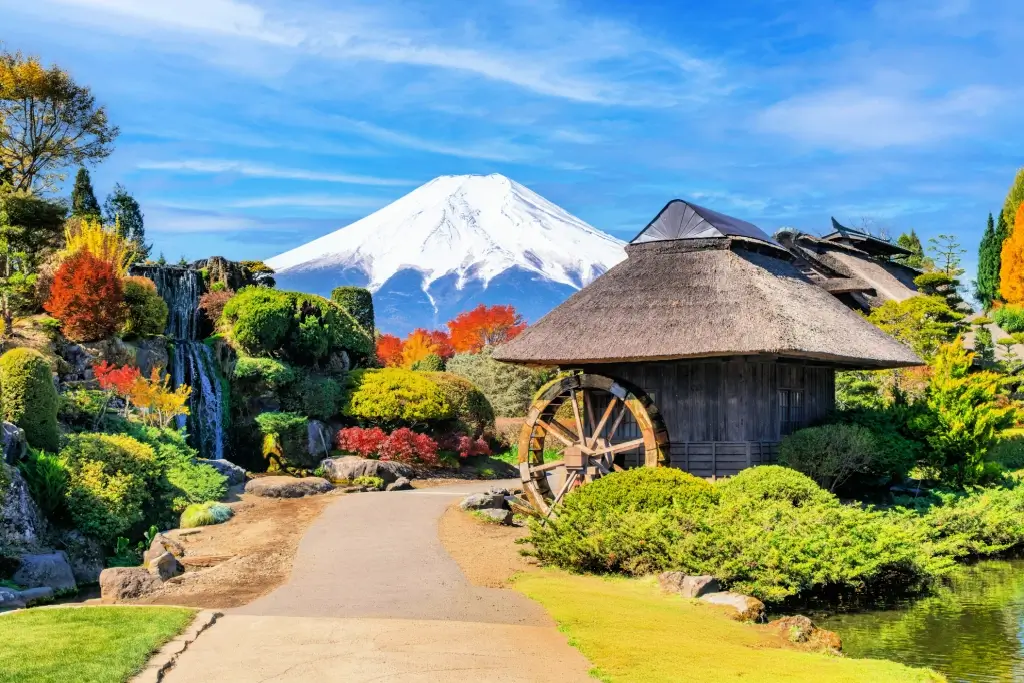
Best Time to Visit Japan: Nine Great Regions!
Japan is famous for its numerous beautiful natural landscapes and its ancient cultural traditions, which are still preserved today. Is now the best time to visit Japan? Let’s explore the nine regions of this nation and what makes each unique.

Kyushu Region: The Subtropical Island of Japan!
The Kyushu region in southern Japan offers natural beauty, rich history, and culinary delights. Comprising seven prefectures, Kyushu is full of attractions, from cities and volcanoes to hot springs and local food.

Kumamoto Food: Five Great Dishes to Try!
Whether exploring Kumamoto Castle or soaking in hot springs, sampling this prefecture’s signature dishes is essential to the experience!
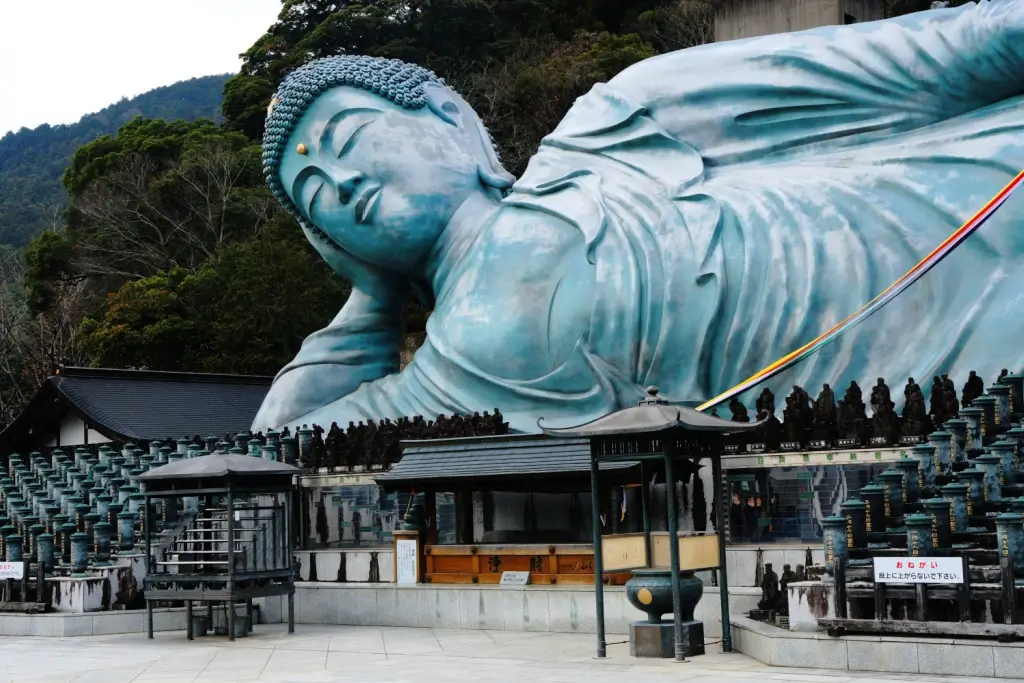
Fukuoka Travel: Enjoy Shopping and Sightseeing!
As one of Japan’s oldest and most culturally significant cities, Fukuoka must be on your following Japanese itinerary!



